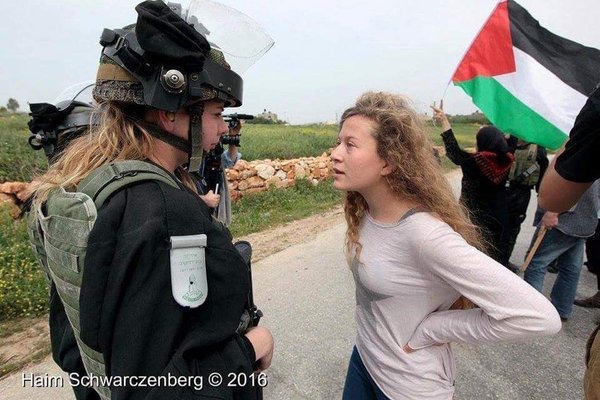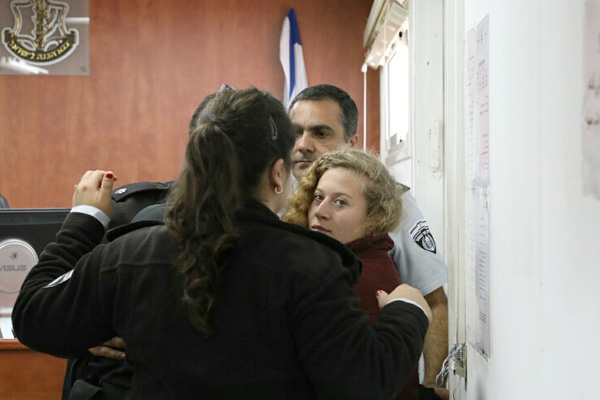My daughter, like Ahed Tamimi, also has blonde curly hair and light eyes. Her continual detention has left me awake in the middle of the night, my stomach churning. What if it was my little girl?

The controversy began with an image — that of a young Palestinian girl slapping the arm of an Israeli soldier. Since that girl, Ahed Tamimi, has been arrested a flurry of images has followed, turning her into the poster child for the new generation of Palestinian resistance.
We should, indeed, be rallying around Ahed. But we mustn’t get so caught up in Ahed’s image that we forget about the hundreds of Palestinian children who are detained by Israel every year. Or perhaps we’ve forgotten about them already? These children come from villages that are not in the media’s spotlight. We know neither their faces nor their names, so it is easy to pretend that they don’t exist.
It is easy to pretend that they aren’t languishing in filthy cells. It is easy to pretend that they aren’t being abused and — dare I say it? — tortured. It is easy to pretend that they aren’t being denied access to attorneys. Hundreds of children every year, many even younger than Ahed.
What if every time one of these children was arrested we all pasted their photos on our Facebook pages? What if we all came up with hashtags for all them? What if all of us pitched editors articles about them and their villages? What if the media showed up for all of those children, each and every one? Would it make a difference?
As I try to keep my eye on the bigger picture, I, too, find myself returning to images of Ahed. The picture that has struck me the most, the image that has undone me, shows her being led into a hearing, surrounded by officers. A woman in a blue uniform grasps the handcuffs wrapped around Ahed’s wrists. Ahed herself is hunched over ever so slightly, as though she’s trying to curl into herself. A smile plays on her lips. Some might see it as a smirk, an act of bravado; But it’s that smile that has awakened some sort of grief in me because in it, I see someone who is disoriented, confused, frightened.

Or maybe it’s us — the Jewish people — who are disoriented, confused, frightened?
My daughter also has blonde curly hair and light eyes — something about the physical similarities between her and Ahed has left me deeply unsettled. Awake in the middle of the night, my stomach churning. What if it was my little girl?
I’ve not visited the particular prison that Ahed is being held in, but lately I’ve been thinking a lot about Abu Kabir, the prison in south Tel Aviv, near my old neighborhood of Kiryat Shalom. I would walk by it on occasion on my way to the elementary school where I volunteered.
As I lie in bed in the middle of the night, I have this absurd fantasy of knocking politely on some door at Abu Kabir. I imagine it opening and I see myself talking to some guard, explaining, calmly, that this is all a big mistake. That they’re holding this little girl by mistake. That the occupation is a mistake and sending soldiers into people’s villages and homes is a mistake and taking Ahed was a mistake. That taking any child is a mistake. And so, you see, dear guard, if you would just let me come in so that I could lead her and the other children out by their hands, by their small hands—hands that will grow, hands that they will use to do many things in their lives, in their futures — I would really appreciate it.
It’s silly, but I have this fantasy of helping this little blonde girl who looks so much like my own daughter. It is a mother’s fantasy. And this is what we all have to do: we have to imagine, we have to understand, the children of Palestine’s villages as our own.

